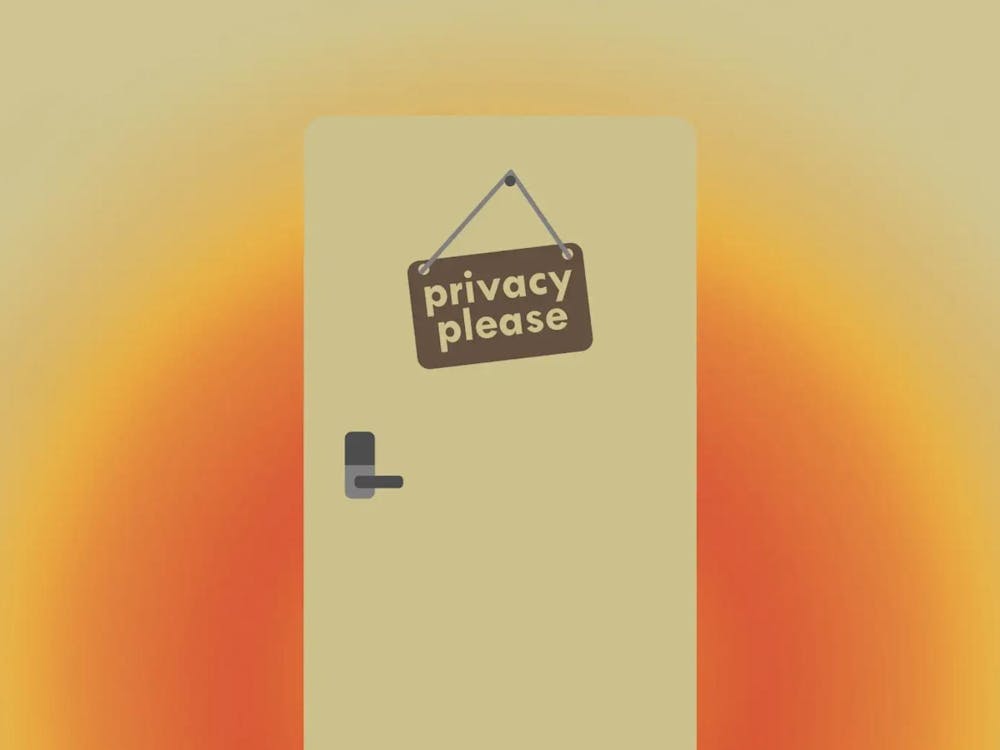A sign hanging in Eugene Mitchell's home reads, "Let your failures motivate you to become more diligent and to achieve victory."
For Mitchell, a former homeless drug addict, the fact that he has a wall to hang a sign is just as motivating as the powerful message.
"About six years [ago] I got involved in crack cocaine and it took me out," Mitchell said.
The struggle with addiction led Mitchell down a path of hunger and homelessness, which ended when he decided to become part of the solution instead of the problem.
"You need to realize that feeling sorry for yourself don't do no good," he said. "You need to get up and tie your shoe a little tighter."
Tonight, Mitchell will share his experiences in the Dome Room of the Rotunda as part of the CavsCare Symposium on local hunger and homelessness, presented by Madison House.
Organizers said they hope to persuade students and community members that hunger and homelessness are not problems that are too large or far away to do anything about.
The event will begin at 7 p.m. and feature a keynote address from University President John T. Casteen III, as well as facilitate a discussion between members of the community who are either homeless or working to make a difference for those who are.
In addition, organizers said they hope the presentation of a student-made documentary on homelessness will put faces with the statistics and help audience members realize that Charlottesville is not immune to hunger and homelessness.
"I hope we can raise awareness to the point of action," third-year College student Brad Barnett said. "So many students think that they can't make a difference, but if they were to rally around a cause like this, I believe they really could."
As co-director of CavsCare, a Providing Action and Care in Transition program under Madison House, Barnett describes his motives as stemming from a personal fear of falling into a self-seeking lifestyle.
"As students, I think that it is important not to get so caught up in our academics that we never give back," he said. "We want to help students realize they really have a lot here."
In creating the symposium, Barnett worked with 22 other University students at the "On Your Own" drop-in center, to prepare food, interact with local homeless people and organize a fundraiser that will be held in the dining halls all next week following the symposium. Students will be able to donate money with cash or Cavalier Advantage. All proceeds will be donated to "On Your Own" to help decrease local hunger and homelessness.
Thanks to Shelia Silverman, director of the "On Our Own" drop-in center, no one in Charlottesville is truly homeless all of the time.
The drop-in center is open every day of the week, offering unconditional food and support to the less fortunate of Charlottesville.
"It's a home," Silverman said. "We've spent a lot of time developing the environment, because it just has to be welcoming."
With most funding coming from grants and donations, the center has to close its doors each night, sending all but a few of its patrons in search of a place to sleep.
The making of the documentary, along with a desire to interact with the homeless, led a few CavsCare volunteers into the dark in search of the experience of a night without a home.
Armed with food and a several layers of warm clothes, the volunteers spent the most time with a few individuals, listening to their stories and sleeping on the cement.
Barnett described one of his nights on the streets with a homeless man as an extremely rewarding experience.
"I got more out of it than he did," he said. "Through this whole experience I've learned a lot about myself."
The idea that volunteers get just as much out of helping as do those who are receiving help is something that most CavsCare volunteers agree on.
"Service is never one-sided; to serve is inextricably interwoven with being served," Barnett said.
For others, service just feels like the right thing to do.
"I wouldn't feel right if I wasn't making people feel like we are all in this together," third-year College student Jenny Parker said. "I've always needed people there for me and I don't want people to feel like they're alone."
Silverman said she realizes it can be scary for some to work with the homeless and she honored the work of Parker and her fellow volunteers.
"Students have a marvelous opportunity to see what other people are like and these folks generally have a really poor image of students, so it's good for them to see that there are all different types of students," she said.
Winfred Faulkner, a 34-year-old recovering drug addict, also said he appreciated the efforts of students.
"I'm glad that students take the time out from their schedules to do stuff that helps to get their lives together while also helping other people get their lives together," Faulkner said. "I really appreciate all that they are doing and thank them from the bottom of my heart."
Faulkner, who aspires to become a writer, said Silverman's unconditional support helped him rise above a lifestyle that included two years of prison after selling drugs.
"When [Shelia] said 'I don't know you,' but showed me love, I didn't have any choice but get my act together," he said.
After graduating from high school and attending community college, Faulkner said he never believed that he could be homeless.
And money was easy to come by while selling and using drugs.
"Money doesn't mean anything: I've blown $1,000 in one night and made $1,000 more the next," he said. "It's the little things that matter -- they've made some of these people's entire year by coming down and showing that somebody cares about them."
In addition to drug and alcohol abuse, many homeless suffer from mental illnesses, which prevent them from being able to function independently within society.
Faulkner said his experiences have shown him that it is wrong to say anyone is not worth helping.
Like many homeless, he considers himself strongly religious and said he believes everybody on Earth is worth something in the eyes of God.
"Life is good," he added. "People say life is not fair -- forget that, if life were fair, we wouldn't have nothing to look forward [to]"




